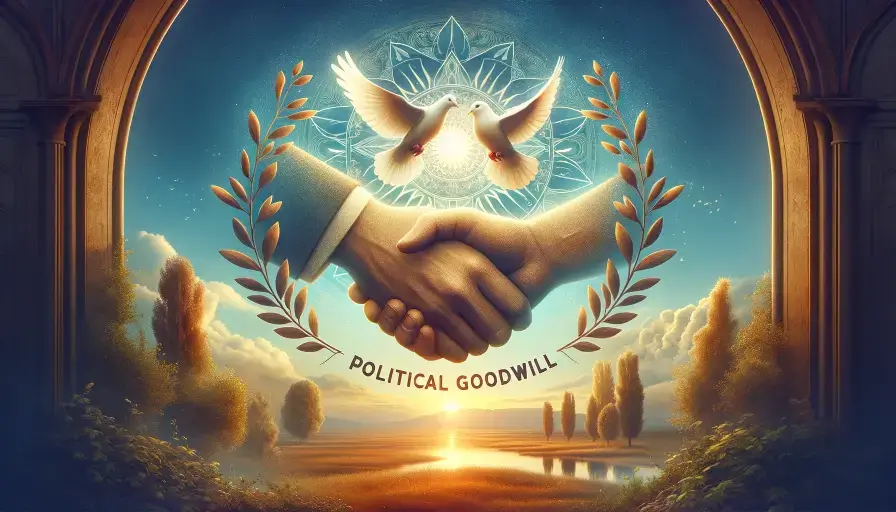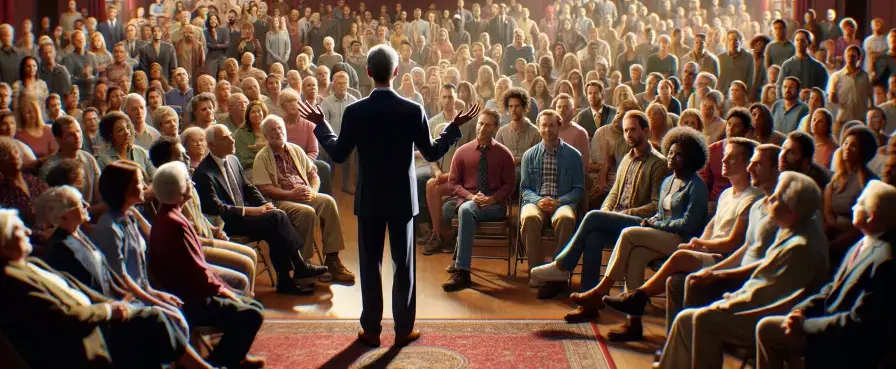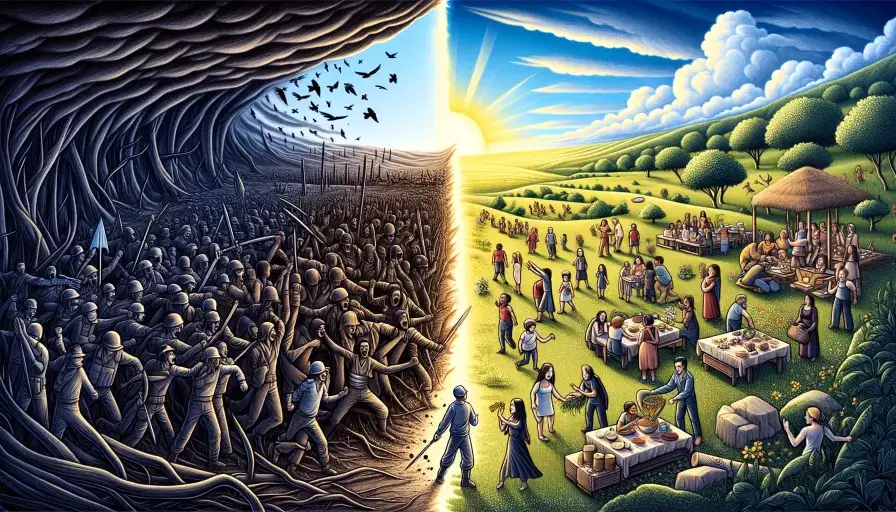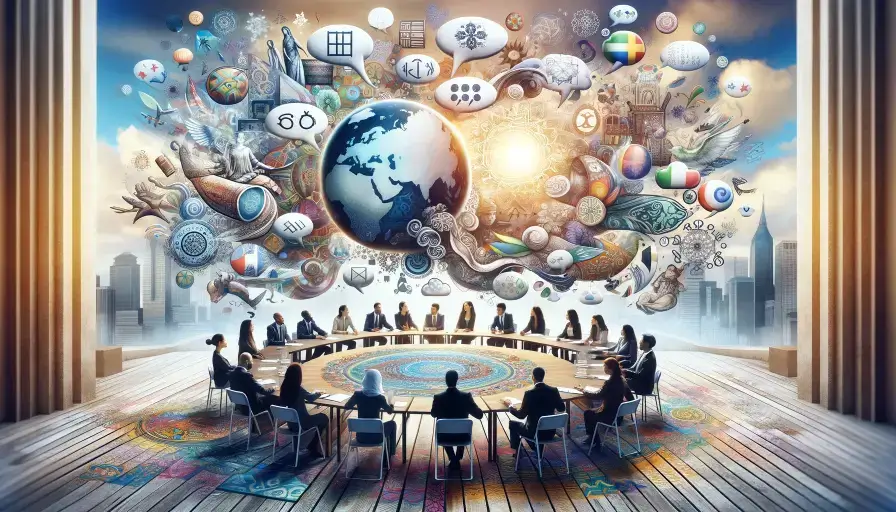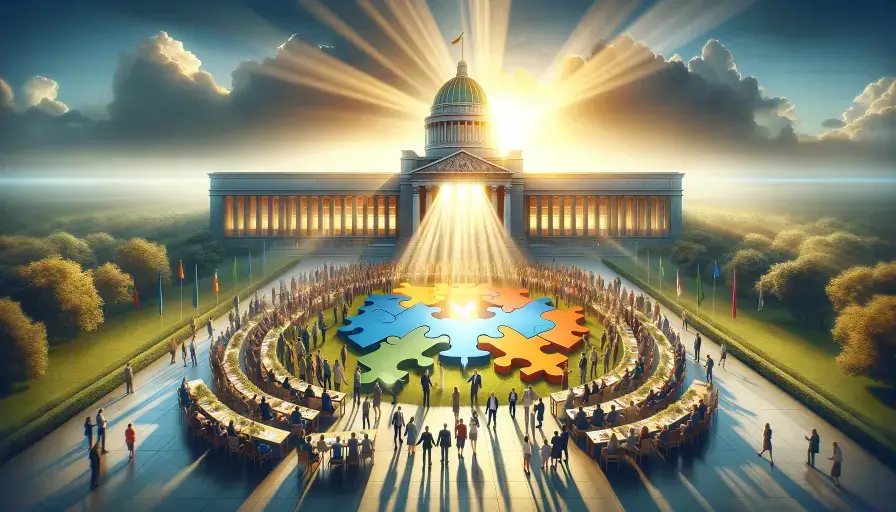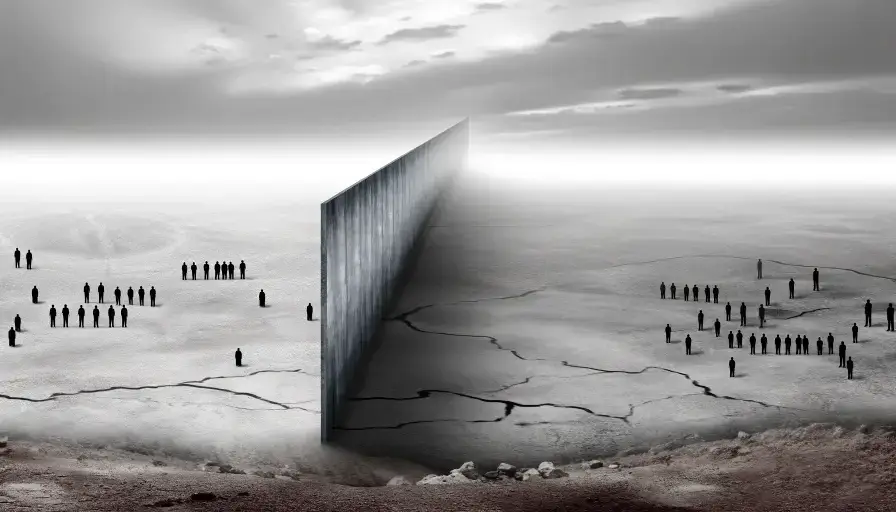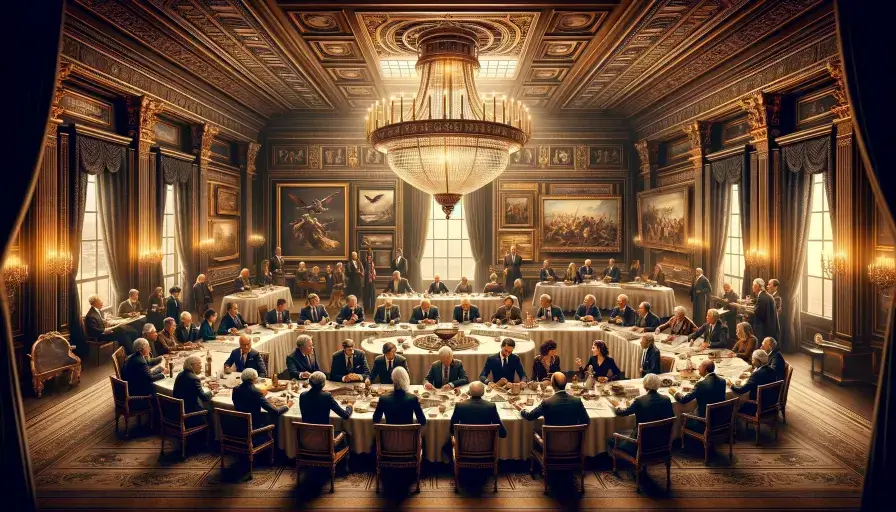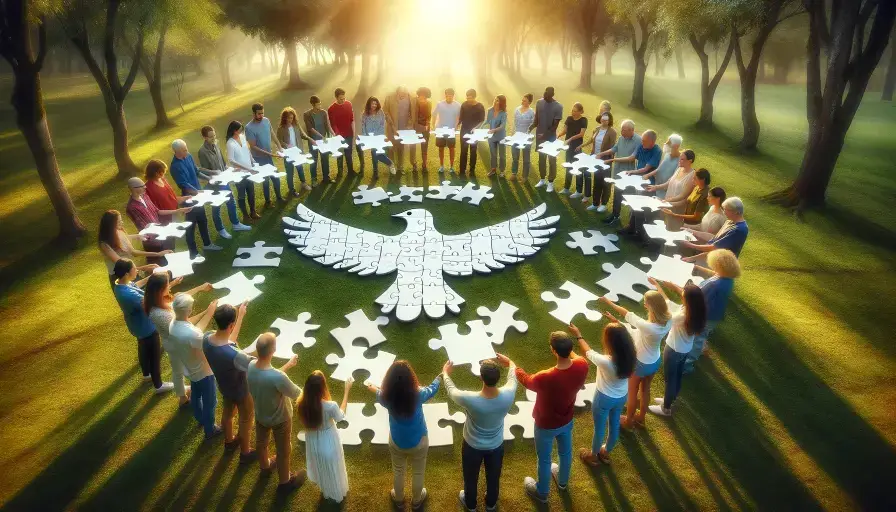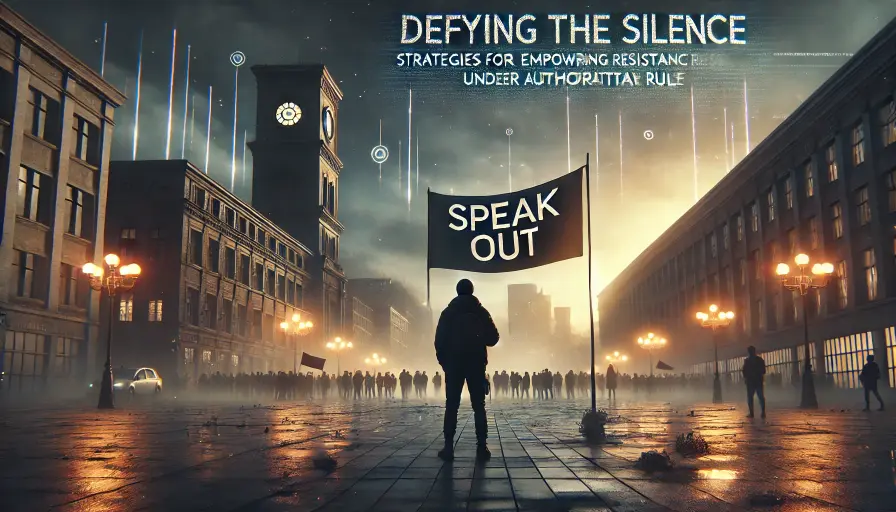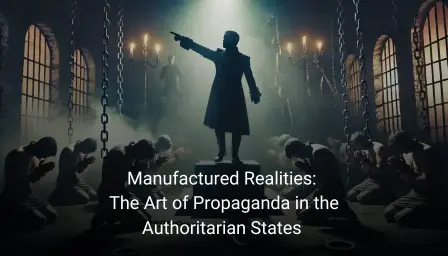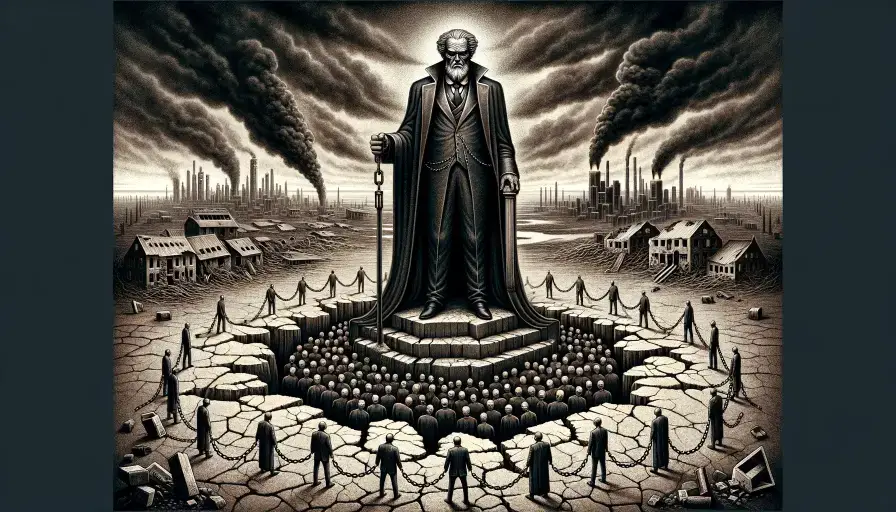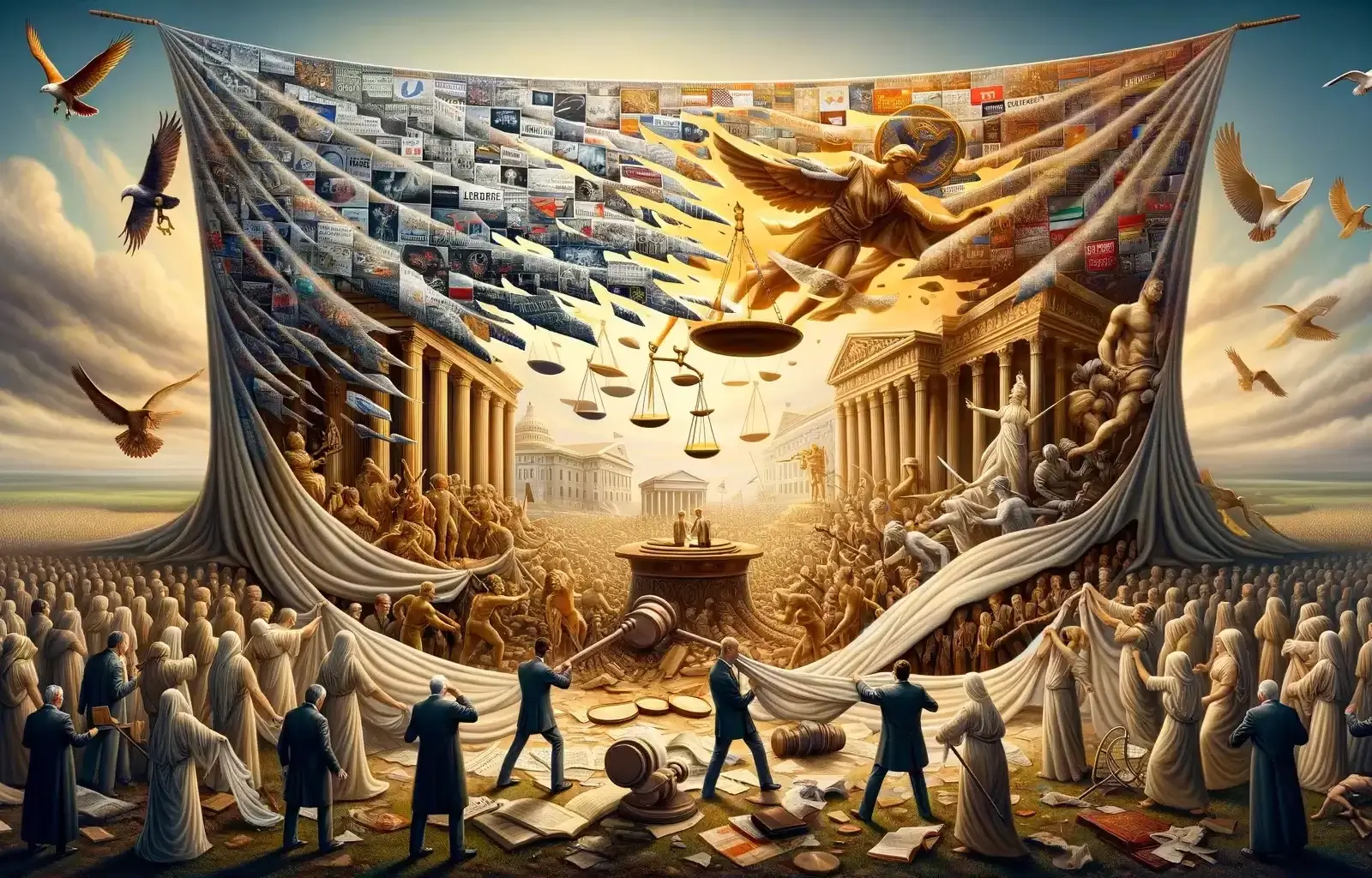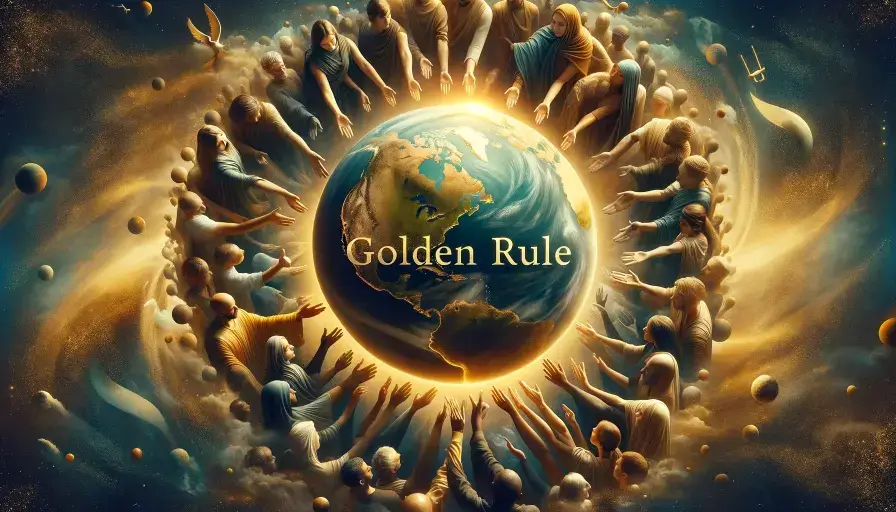Fostering political goodwill has become a paramount concern for nations grappling with ethnic, cultural, and ideological divides in an increasingly polarized world.
Political goodwill, characterized by mutual understanding, cooperation, and trust, promotes social cohesion, constructive engagement, and inclusive governance.
By cultivating an environment of goodwill, nations can bridge divides, mitigate conflicts, and harness the power of diversity for collective progress.
Understanding Political Good Will
Political goodwill refers to the genuine willingness of political actors, institutions, and citizens to engage in reasonable faith efforts, dialogue, and compromise for the greater good of society.
It involves seeking common ground, respecting differing perspectives, and working collaboratively towards goals that transcend narrow party, group, or ethnic interests.
Empathy, or the capacity to see problems from others’ perspectives and understand their complaints and aspirations, is the fundamental foundation of political goodwill.
It requires leaders and citizens to resist demonizing those with differing views and instead strive to find areas of overlap despite ideological divergences.
Integrity is also central to political goodwill. All parties must honor agreements, uphold democratic norms, and demonstrate trustworthy conduct. A dedication to serving the public interest over petty partisan squabbles or nepotism is paramount.
Ultimately, political goodwill is about rejecting zero-sum frameworks and embracing the mindset that a nation’s prosperity is inherently interlinked across all segments of society.
This spirit of solidarity lays the foundation for managing diversity through cooperation rather than conflict.
The Role of Leadership
Leadership plays an indispensable catalyzing role in any effort to foster political goodwill. The rhetoric, actions, and embodied values of prominent political figures set the tone for a society’s overall environment of trust and cooperation.
Inspiring leaders who personify the virtues of empathy, humility, and statesmanship can mobilize diverse constituencies toward a shared vision of national unity.
Their consistent messaging celebrates pluralism while emphasizing commonalities in identity and purpose, which is vital in countering divisive narratives that fuel societal fissures.
Moreover, leaders must walk the talk by actively pursuing initiatives that promote cross-community engagement, minority representation, and collaborative policymaking. Convening multi-stakeholder dialogues, touring historically neglected regions, and amplifying moderate voices can all help bridge divides.
Leaders must also possess the moral courage to make difficult yet necessary compromises for the greater good, even if they risk short-term backlash from partisan bases. The test of transformative leadership on political goodwill is the willingness to place national healing over narrow self-interest.
When the most admired and influential figures in a society exemplify the ethos of political goodwill through words and deeds, it generates a cascading effect that inspires citizens and institutions to transcend prejudices and work cooperatively.
Challenges in Multiethnic and Multicultural Societies
In multiethnic and multicultural societies, achieving political goodwill is fraught with complex challenges rooted in history, identity politics, and resource contestations.
Long-standing grievances, whether stemming from past oppression, land disputes, or ethnic violence, can leave deep psychological wounds that harden distrust across communities.
Generations pass down these unresolved traumas, causing people to reflexively cling to narrow identity groups rather than embracing overarching national unity.
Competition over scarce resources, economic opportunities, public budgets, or natural endowments like water or land can also inflame conflicts as groups view interests as fundamentally zero-sum.
Perceived injustices in resource allocation breed resentment that demagogues can capitalize on to stir unrest.
Differences in values, practices, and ways of life can be misconstrued as existential threats without mutual understanding in societies with sharp religious, linguistic, or cultural fault lines.
Stereotypes and prejudices take root when communities remain siloed with little intermingling.
Furthermore, divisive political entrepreneurship by parties instrumentalizing identity cleavages to amass power poses a persistent obstacle. By inflaming fears and pitting groups against each other, they short-circuit efforts at compromise or reconciliation, which could undermine their raison d’être.
Overcoming these profound challenges requires persistent efforts at dialogue, addressing historical injustices, promoting socio-economic inclusion, and reshaping popular narratives towards celebrating diversity as a source of national strength rather than insecurity.
Case Study: Rwanda’s Post-Genocide Reconciliation Efforts
One pertinent example of a country that has undertaken extensive efforts to foster political goodwill, with both successes and challenges, is Rwanda in the aftermath of the 1994 genocide.
In the face of unimaginable atrocities, Rwanda embarked on a comprehensive program of reconciliation and nation-building aimed at fostering unity and healing among its citizens. The government implemented several key initiatives:
1. Gacaca Courts:
To combat acts of genocide, a legal system based on community involvement was reinstated, with a focus on revealing the truth, admitting guilt, and performing community service instead of incarceration. This strategy facilitates the process of healing and reconciliation by actively engaging communities in the pursuit of justice.
- Unity and Reconciliation Commission:
Established to promote peace, national unity, and reconciliation, the commission has implemented various programs, including education campaigns, community dialogues, and support for genocide survivors.
- Ingando Solidarity Camps:
The purpose of these camps was to provide education and facilitate the integration of former fighters, refugees, and other individuals affected by the genocide.
The focus was on teaching Rwandan history, promoting national identity over ethnic identity, and encouraging participants to contribute positively to society.
Significant achievements, including a remarkable degree of national stability and social cohesion, have marked Rwanda’s approach to reconciliation and fostering political goodwill.
However, the country’s experience also illustrates the complexities and challenges of such efforts. Critics have raised concerns about the suppression of political dissent, limitations on free expression, and the extent to which reconciliation has translated into genuine political pluralism.
Rwanda’s post-genocide reconciliation efforts exemplify the challenges and opportunities of fostering political goodwill in a deeply divided society. They also demonstrate the potential for significant progress in healing and unity but underscore the importance of balancing reconciliation efforts with respect for human rights and political freedoms.
Strategies for Building Political Good Will
Fostering political goodwill requires a multifaceted approach that addresses the root causes of division and promotes inclusive, collaborative, and trust-building measures. Here are some key strategies:
| Strategy | Action | Description |
| Inclusive Governance and Representation | Ensuring all groups have a voice in decision-making through power-sharing, decentralization, and affirmative action. | Diversity and inclusion– ensuring all ethnic, cultural, and ideological groups have a voice in decision-making beyond political tribalism is crucial. Power-sharing arrangements, decentralization, and affirmative action policies that promote fair representation can achieve this. |
| Reconciliation and Conflict Resolution | Addressing historical grievances and conflicts through commissions, restorative justice, and trauma-informed approaches. | Addressing historical grievances and ongoing conflicts is pivotal for fostering political goodwill. Truth and reconciliation commissions, restorative justice initiatives, and trauma-informed approaches can facilitate healing, promote understanding, and pave the way for dialogue and forgiveness. |
| Equitable Economic Development | Addressing economic disparities and resource distribution to mitigate resentment and foster cohesion. | Economic disparities and uneven resource distribution can fuel resentment and undermine social cohesion. By prioritizing equitable economic development, investing in marginalized regions, and ensuring transparent resource management, governments can address root causes of discontent and create a foundation for shared prosperity, fostering a sense of collective progress and goodwill. |
| Education and Cultural Preservation | Promoting understanding, tolerance, and appreciation of diversity through education and celebrating cultural identities. | Education is vital in promoting understanding, tolerance, and appreciation of diversity. Curricula that celebrate different cultures teach the value of pluralism and foster critical thinking, which can help break down stereotypes and build bridges across communities. |
| Dialogue and Cross-Cultural Communication | Facilitating understanding and breaking down barriers through dialogues, forums, and collaborative platforms. | Facilitating dialogue and cross-cultural communication is crucial for fostering mutual understanding and breaking down barriers. Initiatives such as interfaith dialogues, intercommunity forums, and collaborative decision-making platforms can provide safe spaces for diverse groups to engage in constructive conversations, share perspectives, and find common ground. |
| Civic Engagement and Grassroots Mobilization | Empowering citizens to bridge divides and promote unity through community-building initiatives and activism. | Political goodwill cannot be imposed from the top down; it must be nurtured and championed by citizens. Encouraging civic engagement, grassroots activism, and community-building initiatives can empower individuals to take ownership of bridging divides and promoting unity. |
| Promoting Political Cooperation and Consensus-Building | Encouraging collaboration across ideological divides to foster goodwill and a shared vision for the nation’s future. | Encouraging political cooperation and consensus-building across party lines and ideological divides is essential for fostering goodwill. Initiatives such as interparty dialogues, coalition-building efforts, and collaborative policymaking processes can help bridge gaps and promote a shared vision for the nation’s future. |
| Strengthening Civil Society and Public Participation | Engaging civil society and the public in governance and community initiatives to foster a culture of unity and progress. | A vibrant and inclusive civil society is crucial to fostering political goodwill. The state can tap into its citizens‘ collective wisdom and energy by empowering non-governmental organizations, community groups, and grassroots movements. |
| Investing in Public Diplomacy and Cross-Cultural Exchange | Building bridges and fostering understanding through diplomacy, educational exchanges, and people-to-people connections. | Public diplomacy and cross-cultural exchange programs can be powerful tools for building bridges and fostering mutual understanding. By promoting cultural diplomacy, educational exchanges, and people-to-people connections, nations can break down stereotypes, celebrate diversity, and cultivate a deeper appreciation for different perspectives and ways of life. |
| Harnessing the Power of Media and Communication | Shaping public discourse to promote unity and counteract divisive rhetoric through responsible journalism and social media. | The media and communication channels play a significant role in shaping public discourse and perceptions. By promoting responsible and ethical journalism, encouraging balanced and inclusive narratives, and leveraging social media platforms for constructive dialogue, governments and civil society can counteract divisive rhetoric and promote messages of unity and goodwill. |
By addressing the root causes of division, promoting inclusive governance, facilitating dialogue, and fostering a sense of shared identity and purpose, nations can harness the power of diversity and create a more harmonious and prosperous society for all.
The Pivotal Role of Political Elites
While fostering political goodwill requires a collective effort from all segments of society, political elites play a pivotal role in setting the tone and shaping the discourse.
As influential figures with access to resources and decision-making power, their actions and rhetoric can have far-reaching impacts on social cohesion and cross-community relations.
- Modeling Leadership and Ethical Conduct
Political elites are responsible for modeling ethical conduct, integrity, and a commitment to serving the greater good.
By embodying the values of political goodwill, such as empathy, inclusivity, and a willingness to compromise, they can inspire trust and set an example for others to follow.
Their actions and words carry immense weight and can shape public perception, influencing the overall climate of political discourse and cooperation.
- Promoting Inclusive Narratives and Shared Identities
Political elites can shape narratives and influence how diverse groups perceive themselves and their societal place.
Promoting inclusive narratives celebrating diversity while emphasizing shared values and a common national identity can foster a sense of belonging and unity among different communities.
This can counteract divisive rhetoric and encourage a mindset of “us” rather than “them versus us.”
- Promoting Dialogue and Building Bridges
Political elites can leverage their influence and convening power to facilitate dialogue and build bridges across divides.
By creating platforms for cross-party collaboration, inter-community dialogues, and multi-stakeholder consultations, they can bring diverse voices to the table and foster mutual understanding and compromise.
Such initiatives can help diffuse tensions, identify common ground, and pave the way for cooperative solutions.
- Championing Reconciliation and Conflict Resolution
Political elites are crucial in championing reconciliation and conflict resolution efforts in societies grappling with historical grievances or ongoing conflicts.
By acknowledging past injustices, supporting truth and reconciliation initiatives, and actively promoting restorative justice measures, they can demonstrate a genuine commitment to healing and building a more just and equitable society.
- Allocating Resources and Implementing Inclusive Policies
It is essential to recognize the intricate equilibrium to respond to these concerns. Political elites wield substantial power in distributing resources and shaping policies.
To tackle the root causes of dissatisfaction and foster advancement and prosperity across diverse communities, it is crucial to prioritize equitable economic growth, allocate resources to marginalized areas, and enforce inclusive policies that guarantee equal representation and access to opportunities.
This promotes an inclusive political atmosphere and protects the governing administration’s interests.
While fostering political goodwill is a collective responsibility, the actions and leadership of political elites can set the tone and create an enabling environment for unity, cooperation, and social cohesion.
By embodying the principles of political goodwill and using their influence responsibly, political elites can play a pivotal role in bridging divides, mitigating conflicts, and unlocking diversity’s full potential for society’s greater good.
The State’s Role and Willingness
Fostering political goodwill is not solely the responsibility of political elites or civil society; it requires a concerted effort and unwavering commitment from the state.
As the primary institution governing society, the state is pivotal in creating an enabling environment for unity, cooperation, and social cohesion.
|
Aspect |
Action |
Description |
| Demonstrating Political Will and Commitment | The state must fully commit to fostering political goodwill through its policies, resource allocation, and institutional mechanisms. | The state must demonstrate a strong political will and a genuine commitment to promoting political goodwill. Its policies, resource allocation, and institutional mechanisms should reflect this commitment. |
| Upholding the Rule of Law and Equal Rights | Ensuring all citizens are treated equally under the law, regardless of ethnic, cultural, or ideological backgrounds. | A fundamental prerequisite for political goodwill is consistently upholding the rule of law and protecting equal rights for all citizens, regardless of their ethnic, cultural, or ideological backgrounds. |
| Promoting Transparency and Accountability | Transparency in governance and robust accountability mechanisms are essential for building trust among citizens. | Transparency and accountability are crucial for building and maintaining trust among citizens and stakeholders. By ensuring transparency in decision-making processes, resource allocation, and policy implementation, the state can demonstrate its commitment to fairness and integrity. |
| Investing in Capacity Building and Institutional Reforms | The state needs to reform and build the capacity of institutions to promote reconciliation, dialogue, and social cohesion. | Fostering political goodwill often requires institutional reforms and capacity building within the state apparatus. This may involve training public servants on diversity, conflict resolution, and cross-cultural communication issues. |
| Encouraging Civic Participation and Inclusive Governance | Creating opportunities for diverse stakeholder engagement in governance to foster a sense of ownership and commitment among communities. | The state should actively encourage civic participation and inclusive governance practices. By creating avenues for diverse stakeholders to contribute to decision-making processes, the state can foster a sense of ownership and buy-in among various communities. |
Public consultations, citizen advisory councils, and participatory budgeting initiatives can achieve this.
The state’s willingness to embrace and prioritize political goodwill is crucial for its implementation. When the state leads by example, allocates resources, and creates an enabling environment for cooperation and understanding, it can inspire confidence and foster a culture of unity and progress among its diverse citizens.
Addressing Potential Criticisms of Political Goodwill
One potential criticism of the strategies outlined for fostering political goodwill is their romantic nature and the complex challenges of practical implementation.
Although strategies like inclusive governance, reconciliation, equitable economic development, education, and dialogue seem promising, critics argue that their implementation faces significant challenges in societies deeply divided by historical grievances, entrenched inequalities, and political polarization.
For instance, the suggestion of power-sharing arrangements and affirmative action policies might be met with resistance from dominant parties or groups that fear losing privilege or control.
Furthermore, when political institutions require more strength or are plagued by corruption, successfully implementing such techniques may become particularly challenging.
Acknowledging these challenges and recognizing that fostering political goodwill requires visionary strategies and a pragmatic approach to overcoming real-world barriers is essential.
This includes building strong institutions, ensuring the rule of law, and developing mechanisms for holding political actors accountable.
Another critique may focus on the heavy reliance on political elites and the state in driving the process of fostering political goodwill.
Skeptics might point out that, in many cases, political elites are part of the problem rather than the solution, given their involvement in perpetuating divisions for personal or group gain.
Moreover, skeptics of the role of political elites in fostering goodwill might point out instances where leaders have exploited ethnic or cultural divisions for political gain, suggesting that relying on political elites to bridge divides is inherently flawed.
They may argue that systemic change, beyond individual actions or rhetoric, is required to alter the structures and incentives that perpetuate division.
Critics argue that the theoretical idealism of political goodwill overlooks the practical realities of entrenched interests, power dynamics, and the often zero-sum nature of political conflict.
They contend that in contexts where political power is closely tied to ethnic, religious, or cultural identity, efforts to foster political goodwill can be superficial or counterproductive, exacerbating tensions by failing to address the underlying issues of inequality and injustice.
Similarly, it could be considered naive to expect states that may lack democratic legitimacy or exhibit authoritarian tendencies to champion political goodwill.
This criticism underlines the necessity of a bottom-up approach, where civil society, local communities, and grassroots movements play a central role in building political goodwill.
It highlights the importance of empowering these actors, creating space for their participation in political processes, and supporting their efforts in reconciliation and peacebuilding.
The synergy between top-down and bottom-up approaches is crucial for the sustainable development of political goodwill.
Moreover, intercultural education and celebrating diversity may face criticism for failing to adequately address the economic and structural causes of conflict and division despite their inherent importance.
Critics could argue that efforts to promote understanding and tolerance may only scratch the surface without addressing the underlying economic disparities and social injustices.
This criticism points to the need for a holistic approach that combines cultural and educational initiatives with concrete steps to tackle economic inequality, ensuring access to resources, opportunities, and social justice for all members of society.
Finally, one may also question whether promoting positive political relations in the context of foreign forces and geopolitical objectives is possible.
International actors, neighboring countries, and global economic forces have the potential to significantly impact domestic politics and exacerbate or mitigate divisions within a country.
This criticism calls for a broader perspective that considers external dynamics and seeks international cooperation and support to build political goodwill while being vigilant against external interference that may undermine these efforts.
In addressing these criticisms, it is clear that fostering political goodwill is a multifaceted challenge that requires adaptable, context-sensitive strategies, the engagement of a broad spectrum of societal actors, and a commitment to addressing both the symptoms and root causes of division and conflict.
Skeptics recognize that political goodwill is not a panacea but one component of a broader strategy to address deep-seated social and political divides.
The journey toward political goodwill is arduous and complex, but by acknowledging and creatively addressing these criticisms, societies can move closer to achieving unity in diversity.
Governmental Skepticism Towards Political Goodwill:
Skepticism towards the practical implementation of political goodwill, especially in deeply divided societies, is not unfounded.
A significant obstacle to implementing strategies to foster political goodwill is the skepticism and resistance often exhibited by ruling governments and political elites.
There is a legitimate fear that promoting inclusive governance, power-sharing arrangements, and engaging with opposition groups could threaten their hold on power, especially in deeply divided societies.
Entrenched zero-sum political mindsets frequently raise this skepticism, viewing concessions to other groups as unacceptable losses.
Viewing politics through the rigid lens of ethnic, religious, or ideological identities can perceive compromise as a betrayal of the in-group. Historical examples where inclusive policies led to internal power struggles further fuel such concerns.
However, this skepticism towards political goodwill is fundamentally rooted in a narrow, short-term view of political expediency. Fostering an environment of cooperation, trust, and mutual understanding across diverse groups is the most viable path to long-term stability and societal resilience.
Governments must recognize that promoting political goodwill does not necessitate complete capitulation but rather represents an opportunity for prudent power-sharing that enhances national unity while preserving core governing functionality.
Both parties can institute principles like robust constitutional safeguards, independent judiciaries, and transparent checks and balances to alleviate fears of a complete power transfer.
Moreover, prioritizing political goodwill allows leaders to cultivate a powerful legacy as statesmen who united the nation rather than sowing further divisions.
Reconciling long-standing grievances and shepherding societies out of the dilemma of perpetual conflict requires immense moral courage, but it also yields immense admiration and influence that transcend electoral cycles.
Overcoming ingrained skepticism demands a multipronged approach of trust-building measures, facilitated cross-party dialogues, and substantive participation of civil society in governance processes.
As communities observe a genuine commitment to inclusion from the highest levels, they are more likely to reciprocate with increased buy-in and faith in the political system.
Furthermore, the international community tends to view political goodwill initiatives positively, opening avenues for cooperation, investments, and an improved global standing for the nation – incentives that can appeal to even the most power-minded governments.
Ultimately, we must address skepticism from ruling powers by consistently demonstrating the mutually reinforcing benefits of inclusive, participatory governance.
By embracing political goodwill as a stabilizing force rather than a threat, societies can unlock their full potential and resilience in the face of diversity and division.
The Role of Opposition Parties
Opposition parties and groups also play a critical role in alleviating ruling governments’ fears and skepticism about political goodwill initiatives.
They can send a powerful signal of reassurance by demonstrating a genuine commitment to rules-based conduct and constitutional processes and rejecting violence or extralegal means.
When opposition entities position themselves as constructive partners working towards national reconciliation rather than zero-sum threats, it can help build trust and ease concerns about political goodwill being a Trojan horse for regime change.
Proactively embracing governance reforms like anti-defection laws, independent election monitoring, and civic education can further reinforce credibility.
Moreover, opposition leaders projecting a vision of pluralism and inclusive politics that protects majority rights while upholding minority safeguards can counter-narratives of political goodwill as a ploy to grab power.
Ultimately, opposition restraint coupled with a solutions-oriented mindset is critical to convincing skeptical governments that the path of political goodwill is a win-win for entrenching durable peace and democracy.
The essence of political goodwill lies not in the complete relinquishment of power but in its strategic sharing in ways that enhance national unity and social harmony without undermining the stability of governance.
The Way Forward
Fostering political goodwill is an ongoing process that requires sustained effort, commitment, and collective action.
It demands leadership that embodies the values of empathy, integrity, and a genuine commitment to serving the public interest.
By embracing inclusive governance, promoting reconciliation, and cultivating understanding through education and dialogue, nations can harness the power of diversity and build a more harmonious, prosperous, and resilient society.
Ultimately, political goodwill is not just a lofty ideal; it is a practical necessity for addressing complex challenges, mitigating conflicts, and unlocking the full potential of human capital.
As we navigate an increasingly interconnected world, cultivating an environment of goodwill, cooperation, and mutual respect will be the key to achieving lasting peace, stability, and progress for all.
Conclusion:
While the temptation to resort to force and conflict may seem enticing to some groups seeking to address long-standing ethnic or political grievances, pursuing dialogue and political goodwill offers a more durable and ethical solution.
The path to violence only breeds more violence and civilian suffering and further entrenches societal divides.
Conversely, a sincere commitment to political goodwill through empathetic listening, power-sharing, and seeking common ground can transform seemingly intractable conflicts into mutual understanding and reconciliation opportunities.
From the depths of genocide in Rwanda, the most lethal and destructive war of the 21st century in Ethiopia, to the religious fault lines in Lebanon, history has demonstrated that even the bitterest of feuds can be transcended when leaders opt for the detailed yet rewarding work of political goodwill over warfare.
By facilitating inclusive dialogue, acknowledging injustices, and crafting governance models that provide security for all sides, political goodwill forges paths to unattainable sustainable peace through the destruction of war.
For nations torn by internal strife, rejecting the bloody’ solution’ and summoning moral courage to pursue political goodwill is the wiser road to healing and progress.
Citations:
Lederach, J. P. (2003). The little book about conflict transformation. Good Books.
Putnam, R. D. (2000). Bowling alone: The collapse and revival of American community. Simon & Schuster.
Sisk, T. D. (2017). Statebuilding: Consolidating peace after civil war. Polity Press.
United Nations Development Programme (UNDP). (2020). Fostering social cohesion and reconciliation in post-conflict situations.
Wolff, S. (2011). Conflict management in divided societies. Routledge.

